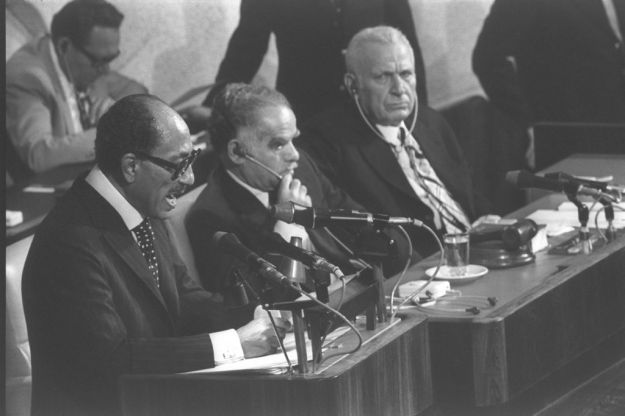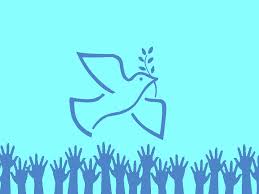Dancing with speeches this year has opened up new ideas, pathways, people and places. The year ends with edicts are being proclaimed in tweets from world leaders, speeches like that of Anwar Sadat’s are rare these day. The modern US composer Mohammed Fairouz says a speech is a kind of music by itself. There is certainly poetry and power in this week’s 1977 speech from Anwar Sadat. The speech took him from Cairo to Jerusalem stands as an incredible contrast to the leaders of today. What better instruction could we have than to be asked to fill the earth and space with recitals of peace! This speech is a little dance on a few phrases and the season, a speech that might be given by a CEO to their staff Christmas party.
You, bewailing mother; you, widowed wife; you, the son who lost a brother or a father; you, all victims of wars – fill the earth and space with recitals of peace. Fill bosoms and hearts with the aspirations of peace. Turn the song into a reality that blossoms and lives. Make hope a code of conduct and endeavour. The will of peoples is part of the will of God.
This Christmas Eve, looking for the spaces that gives us access to the sacred space means entering touching into eternity is the search that comes when following the star.
It is in the space, the silence between the notes, the crack where the light gets in, the shoot appearing in the crevice breaking the concrete. Keeping our poems and our music close together where we can recite by heart the words to guide us to humanity and our best selves is my hope for this season. We are all connected and when the song rings out from fans across a football stadium, the audience joining in the chorus in that same football stadium transformed into a rock concert, we know that we are one. We know we have arrived at a common place, and then when the harmonies begin … another level of beauty rises. We use the line “singing from the same hymn sheet” to bring clarity to argument and shared vision to strategic planning in corporate board rooms. What if we actually did then rise in song to consolidate a moment?
After a trial of decision-making and intense argument I was working with a board and at the end of the decision where consensus arrived I played one of KD Lang’s rendition’s of Leonard Cohen’s Hallejuah, the group stopped and silently listened … there were tears. I need to do this more often, bring music to the moments of decision-making and poetry to speech-making.
Language to bring people together is what a speech and a song can do. On this night songs will be sung by heart about the birth of a child in Palestine a couple of thousand years ago, those who only swing by the places of worship once or twice a year, will find the deep connection, the deep time in their cells. They will sing … there will be tears. The common humanity to be found in the humility of a stable with a family on the run from a tyrant seeking to destroy a generation, is the story of the day as Aleppo falls and orphans look for signs in the sky that are not bombs.
There will be some voices singing out of tune, creating a wild kind of counterpoint to remind us the rhythms and rhymes may co-exist but are not always in harmony – and that helps us know where the spaces are. Those voices also offer us an invitation to come follow and see where we might be led. We hear the humour in the off beat and out of time.
May your Christmas take you from Cairo to Jerusalem under fire, may you find the babe in a manager in a village of your ancestors, and may you bring yourself to sacred spaces to hear the silences in poetry and music.

Egyptian President Anwar Sadat addressing the Israeli Knesset in Jerusalem, Nov 20, 1977, The Times of Israel


